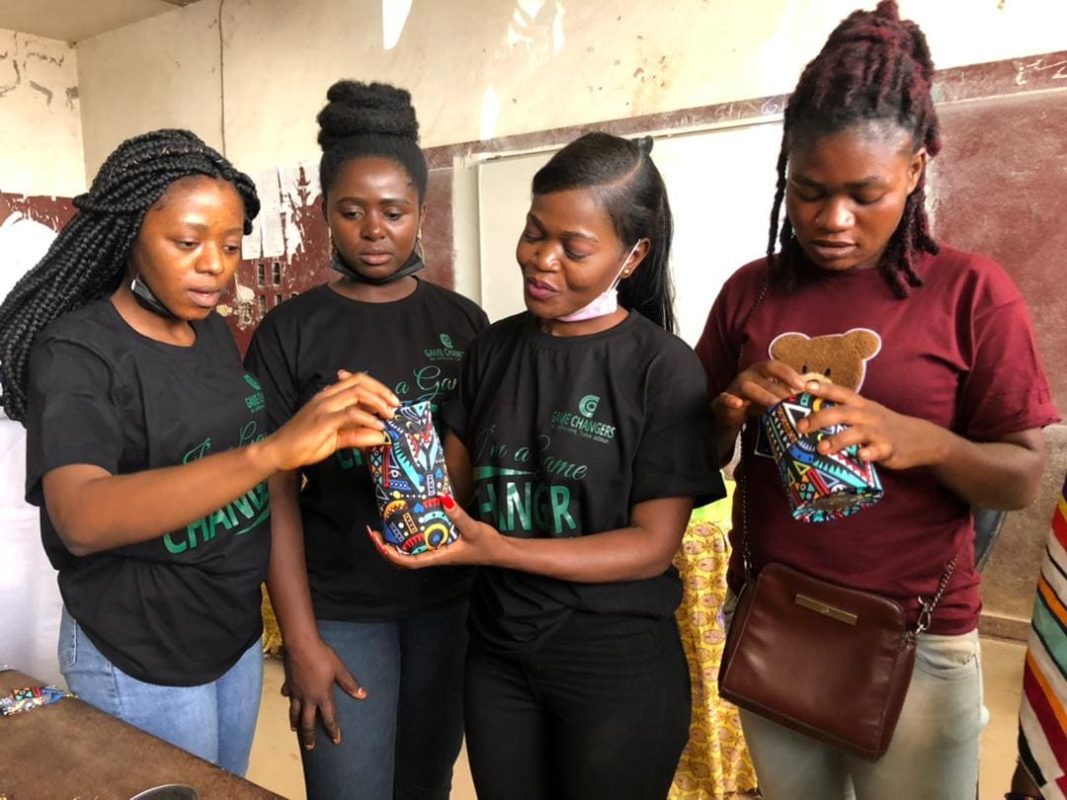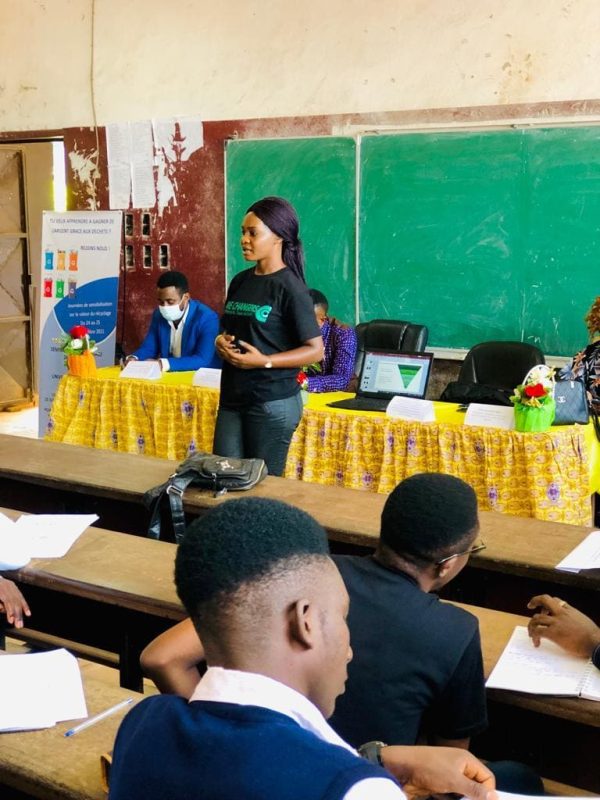Green Growth Capacity Building Workshops

Green Growth Capacity Building Workshops
This was a two-day training for budding entrepreneurs, small businesses and civil society organisations who have innovative ideas on how climate change can be tackled. Small and Medium Sized Enterprises (SMEs) account for about 90% of businesses worldwide. What this implies is that, there can be no transition to net zero without the involvement of SMEs. The green growth capacity building workshop was therefore designed to inspire startups, small businesses and project owners to incorporate sustainability practices in their operations at every level. Small businesses of today are potentially the big businesses and multinationals of tomorrow. Thus, grooming them to embrace sustainability practices at the early stages will ensure business models that minimise negative impacts on the environment as they grow.
Objectives of the Workshops
- To galvanise small and medium-sized enterprises to transition to low-carbon operating models from the early stages.
- To promote the emergence of future big businesses that are environmentally conscious with established and functional environmental sustainability plans.
- Increase the number of SMEs within the Game Changers coalition
- Increase the number of SMEs within the Game Changers coalition

- Beneficiaries/participants
- Entrepreneurs and Promoters of Small and Medium Sized Enterprises (SMEs)
- We trained 100 participants within the city of Yaounde and Douala. 50 in each city.
- The actual number of participants who took part in the workshops: 91 (40 in Yaounde and 51 in Douala).
- Workshop Presentations:
1) A context-setting presentation by Mr. Jean Felix Ebo’o(Founding President of “Amis de la Planete”, and Young Climate Ambassador at Center for the United Nations Constitutional Research (CUNCR). The presentation was focused on raising awareness of the climate crisis and the impact of human activities on the environment/climate.
2) A presentation on the Circular Economy as a pathway to redressing the climate crisis. This was done by Mr. Blondel Silenou, Executive Director of Young Volunteers for the Environment. It helped shed more light on the circular economy concept, which is believed to be an effective strategy in the fight against climate change and other environmental challenges. A sustainability move that can help companies reduce their operating cost by up to 60%.
3) An interesting session on climate financing (by Mr. Blondel Silenou), which explored and presented green financing mechanisms/opportunities that exist to help scale climate solutions worldwide and in developing countries in particular. Some of the mechanisms presented and discussed include: the Green Climate Fund, the Global Environment Facility (GEF) small grant mechanism, Clean Development Mechanism, and other financing opportunities for environmental sustainability such as those offered by the African Development Bank, and other institutions as part of their corporate social responsibility (e.g., Standard Chartered Bank)
4) Presentation of best practices within Cameroon. This was a brief session presented by Ms. Ndifoin Beverly Niyang and Ms. Patu Ndango Fen. Examples of companies integrating sustainability practices in their built-in environment and operations were used. Companies that were used as examples of sustainability best practices include:
- The Magrabi Ico Cameroon Eye Institute, which relies almost entirely on renewable (solar) energy and prioritisesa green environment covered with significant number of trees. Their determination and efforts towards better waste management was also a topic of discussion.
- Coconut Island (l’Ile des Cocotiers): a leisure center offering different services including a restaurant which relies enormously on locally sourced and grown food stuff. It has an engineered environment which is closely related to nature and offering a unique permaculture experience.
- GreenHouse Ventures: a sustainable agricultural company which relies on the use of greenhouses to grow organic, healthy foods both for the local and international markets.
The themes for the Douala session included:
1) A context-setting presentation by Mr. Jean Felix Ebo’o(Founding President of “Amis de la Planete”, and Young Climate Ambassador at Center for the United Nations Constitutional Research (CUNCR). The presentation was focused on raising awareness on the climate crisis and the impact of human activities on the environment/climate.
2.) A detailed presentation about the circular economy being a pathway to redressing the climate crisis while being a levier for economic development presented by Ms. Patu Ndango Fen, Project Coordinator of the Game Changers.
3) An enriching presentation on Climate Technology, its innovations within the business environment and its impact on financing and profitability done by Mrs Jacinda Washington Njike, Senior Manager at PricewaterhouseCoopers.
4) A mind-opening session on how circularity can be applied to the fashion industry delivered by Ms. Ngwane Liz, CEO and Founder of Margo’s Mode (Sustainable Fashion designer).
Outcome/Results
- 91 participants received tailored training on climate-related topics, low carbon operating models, green growth strategies and, the vital role SMEs can play in contributing to fight against climate change which is a global challenge requiring local climate actions.
- Participants pledged to join the Game Changers coalition.
- Over 50% of participants filled out the commitment form during and after the workshop.
- Over 70% of the participants followed Game Changers on various social media platforms, liking, commenting, tweeting and retweeting content related to the movement.
